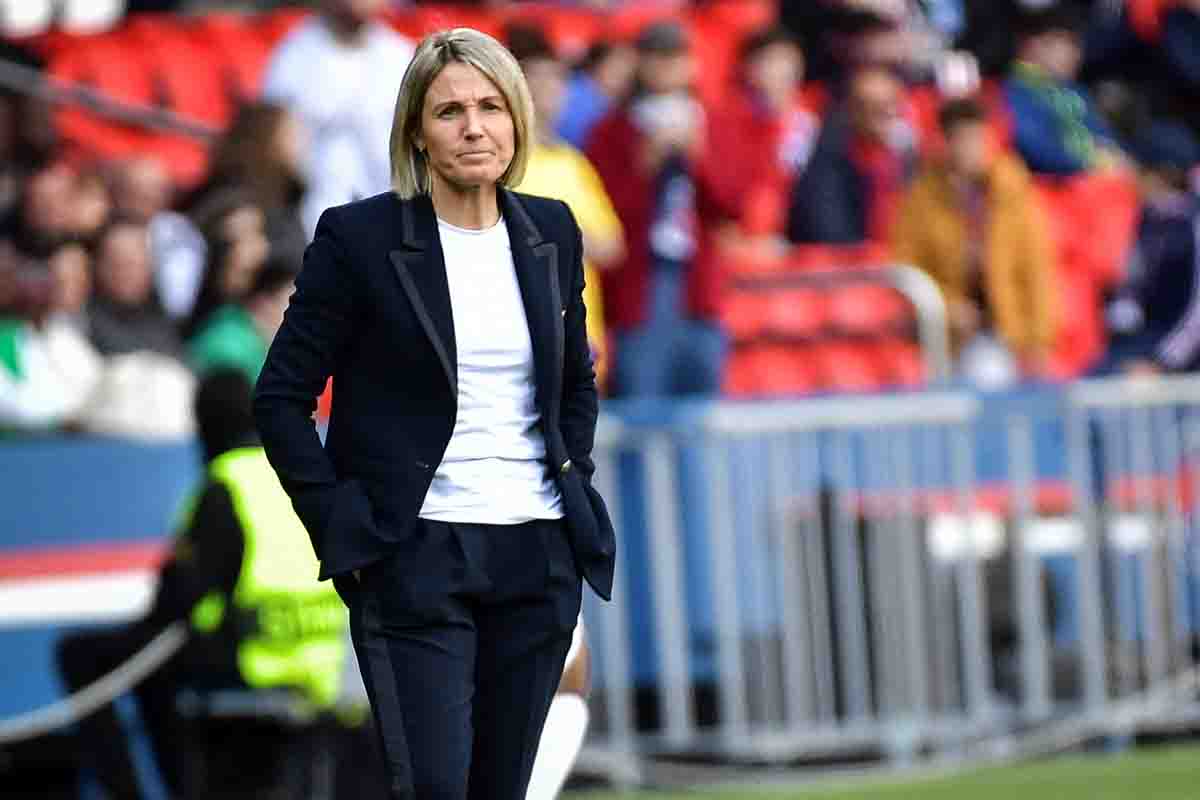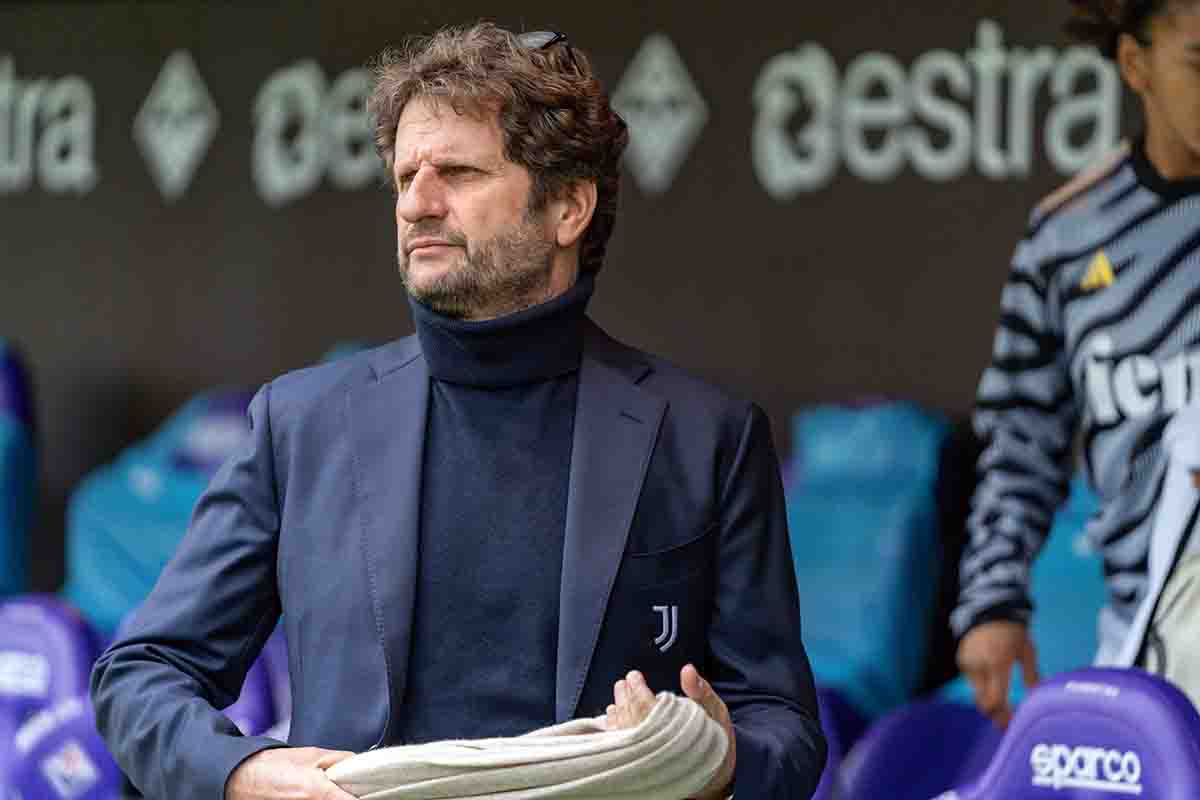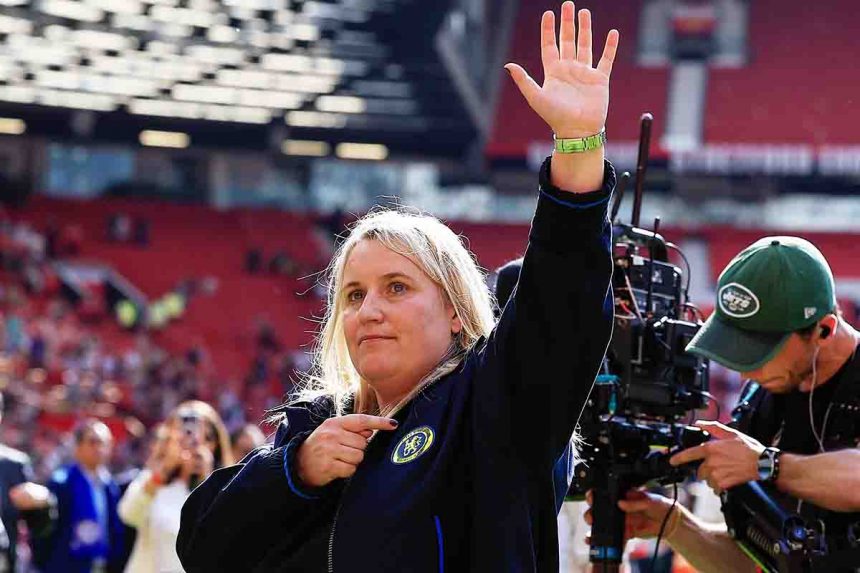The 2023-24 season of women’s football has been marked by an unprecedented wave of managerial changes. The departures of some of the sport’s most successful and iconic coaches signal the end of an era and the beginning of a new chapter. Key among these changes are the departures of Emma Hayes from Chelsea, Jonatan Giráldez from Barcelona, and Sonia Bompastor from Olympique Lyon.
These shifts, along with other notable changes at clubs like Ajax, have sent ripples through the football world. This article delves into these significant transitions, their impacts, and what lies ahead for the clubs and the sport as a whole.
Emma Hayes and Chelsea: the end of an iconic Era
Emma Hayes’ departure from Chelsea is arguably the most significant managerial change in women’s football this season. Hayes, who took charge of the team in 2012, transformed Chelsea into a powerhouse in women’s football. Under her leadership, the club secured numerous titles, including six Women’s Super League (WSL) titles, four FA Cups, two Continental Cups, and the much-coveted UEFA Women’s Champions League trophy.
Hayes’ impact extended beyond the silverware. She played a pivotal role in raising the profile of women’s football in England, advocating for better facilities, pay, and conditions for female players. Her tactical acumen, ability to nurture talent, and relentless pursuit of excellence set a new standard in the game.
Her departure, announced in November 2023, was met with widespread emotion. In her farewell message, Hayes expressed her gratitude to the club, players, and fans, and hinted at a desire to seek new challenges. Speculation about her next move has been rampant, with possibilities ranging from taking on a role in men’s football to leading a national team.
For Chelsea, replacing a figure as influential as Hayes is a formidable task. And the club, choosing Sonia Bompastor that at the very same time left Olympique Lyon, confirmed high level ambition and expectations. Chelsea is already targeting big shots between Champions League and English Super League…
Jonatan Giráldez and Barcelona: a surprising departure
Jonatan Giráldez’s exit from Barcelona has also been a major talking point. Giráldez, who stepped up from his role as assistant coach to replace Lluís Cortés in 2021, led Barcelona to unprecedented success. Under his guidance, the team continued its domestic dominance, securing multiple league titles and adding another UEFA Women’s Champions League trophy to their cabinet.
Giráldez was known for his tactical flexibility, emphasis on attacking football, and ability to integrate young talents into the first team. His unexpected departure, announced in January 2024, caught many by surprise. Giráldez cited personal reasons for his decision, emphasizing the need for a break from the intense pressures of top-level management.
Barcelona now faces the challenge of finding a successor capable of continuing Giráldez’s legacy. The club is still on the move and no decision has been taken aleady. The club’s rich history and success make it an attractive proposition for many top coaches, but the new manager will need to quickly adapt to the high expectations and pressure that come with the job.
Sonia Bompastor and Lyon: legacy and excellence
Sonia Bompastor’s tenure at Olympique Lyon came to an end in May, marking another significant shift in the landscape of women’s football. Bompastor, a former player for the club, took over as head coach in 2021 and led Lyon to numerous titles, including two Division 1 Féminine titles and a UEFA Women’s Champions League victory.
Bompastor was celebrated for her deep understanding of the game, ability to motivate players, and tactical expertise. Her departure, attributed to a desire to explore new opportunities, has left a void at one of the most successful clubs in women’s football history. Her contract was long: Bompastor had a discussion with club0s management and the new owner and president Michelle Kang asking to leave. And Lyon agreed. New manager will be former Arsenal and Juventus coach Joe Montemurro that will be tasked with keeping Lyon’s dominance in French football and competing at the highest level in Europe.
Ajax: experienced coach with youngsters
Ajax, another notable name in women’s football, also saw a change in management. The departure of Suzanne Bakker marked the end of a transformative period for the club that reached for the very first time in years a relevant role in Champions League.
Bakker’s departure was part of a broader restructuring at Ajax, aimed at rejuvenating the team and building for the future. The club has since appointed Hesterine de Reus (62 yo) whose vice will be Sonny Silooy, a former player and trainer of Dutch international team. The club will keep on investing on youngsters that will have huge opportunities to show their qualities in Eredivisie and Champions League.

The broader impact
These managerial changes reflect a broader trend in women’s football, where the increasing professionalization and competitiveness of the sport are driving clubs to seek new ideas and fresh approaches. The departures of Hayes that moved to the US National Team, Giráldez, called to take care of Washington Spirits, one of the strongest, richest and most important clubs in NWSL, and Bompastor, in particular, highlight the immense pressures and expectations placed on top managers.
For the clubs involved, these changes present both challenges and opportunities. New managers bring new philosophies, tactics, and energy, which can revitalize teams and lead to success. However, they also face the daunting task of living up to the legacies of their predecessors.
For the sport as a whole, these changes are a sign of its growing stature and the high stakes involved. The fact that some of the best managers in the game are moving on suggests that women’s football is a dynamic and evolving field, where constant innovation and adaptation are key.

Looking ahead
As the dust settles on these significant departures, the focus will shift to the future. Chelsea, Barcelona, Lyon, and Ajax are all clubs with rich histories and ambitious plans. The new managers at these clubs will need to navigate the pressures of high expectations, build on the foundations laid by their predecessors, and drive their teams to new heights.
For fans, these changes offer a mix of nostalgia and excitement. The departures of beloved figures like Emma Hayes and Sonia Bompastor are bittersweet, but they also open the door to new possibilities and the chance to witness the next generation of managerial talent.
In the broader context of women’s football, these transitions are a testament to the sport’s growth and evolution. As the game continues to gain popularity and attract investment, the demands on managers and players will only increase. The ability to adapt, innovate, and excel under pressure will be crucial for those looking to succeed at the highest level.
In conclusion, the 2023-2024 season has been a watershed moment for women’s football, marked by significant managerial changes that herald the end of an era and the beginning of a new one. The departures of Emma Hayes, Jonatan Giráldez, Sonia Bompastor, and others reflect the dynamic and evolving nature of the sport. As new managers step into these high-profile roles, the world of women’s football watches with anticipation, eager to see what the future holds for these storied clubs and the game itself.







